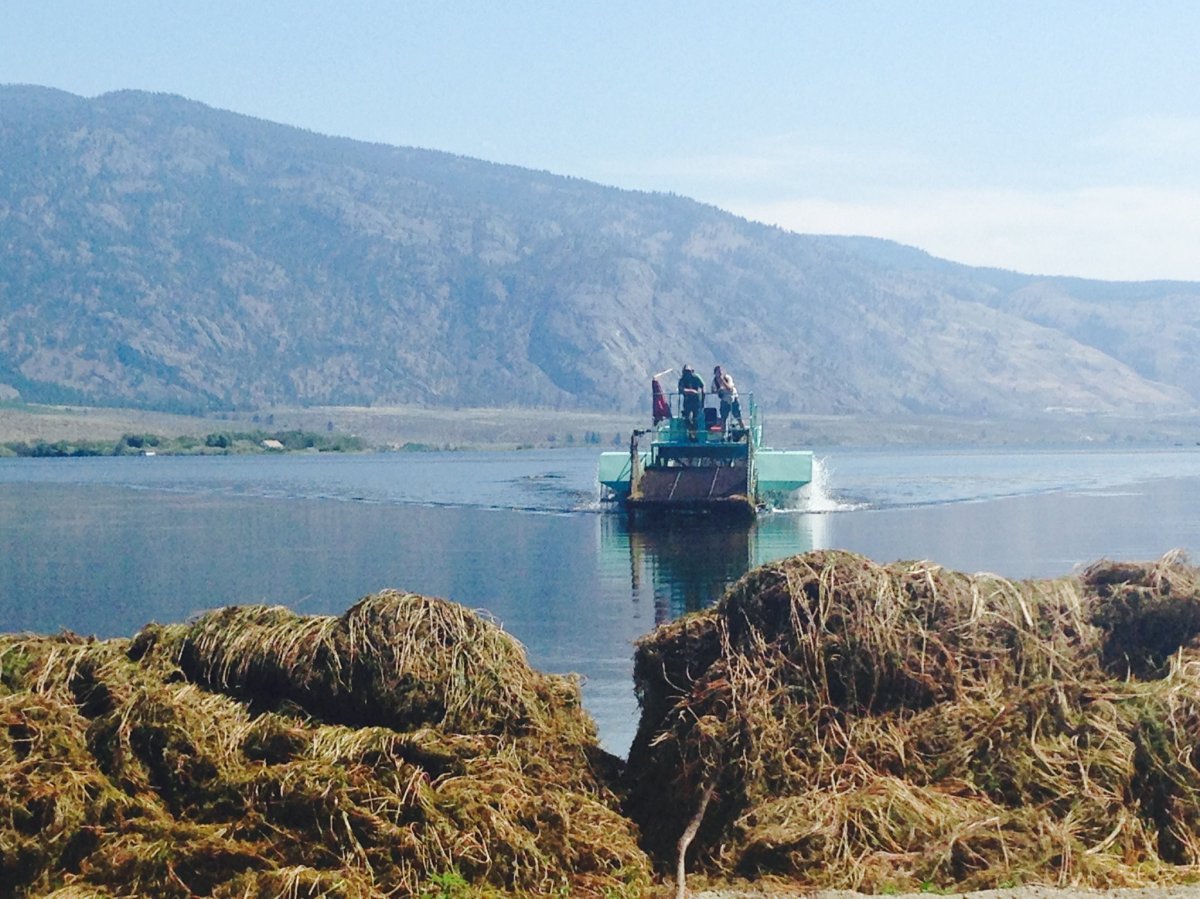If drought conditions are declared this summer, the Okanagan Basin Water Board says it’ll be ready for them.

This week, the Okanagan Basin Water Board (OBWB) released its April board meeting report. In it, OBWB said several projects are underway to help area water utilities prepare for a possible drought this year, including an update to its drought response strategy.
WATCH BELOW (Aired March 27, 2019): Osoyoos Lake to be raised early in response to potential drought risk

“If the B.C. government declares the Valley in Level 2 drought, or higher, the strategy is triggered and includes activities that OBWB will undertake, including drought bulletins to water providers, public communications and more,” said the OBWB.
“Staff are also conferring with the province’s Thompson-Okanagan regional drought response team. They are also working with utilities, who draw off the Okanagan’s Valley bottom lakes, to integrate a newly developed drought trigger system into their local drought plans.”
The OBWB also said Eurasian milfoil control was discussed at the meeting. Eurasian milfoil is a perennial plant that grows underwater, blooms in late July and early August and is considered invasive.
Eurasian milfoil is said to spread rapidly and has been known to impede flood control, water conservation, drainage and irrigation.
According to Fisheries and Oceans Canada, Eurasian milfoil was first observed in B.C. in 1970 in Okanagan Lake. The plant has spread since to all the main lakes in the Okanagan, into the Shuswap and to numerous water bodies in the Lower Mainland and on Vancouver Island.
The OBWB says it’s been responsible for Eurasian milfoil control in the Okanagan since the 1970s. The OBWB says it does so by harvesting in summer and rototilling roots on shallow lake portions during fall and winter.
However, it appears rototilling is at loggerheads with an endangered species, the Rocky Mountain Ridged Mussel.
The provincial government says “the Rocky Mountain Ridged Mussel is a freshwater mussel (or bivalve) that is only found in the Okanagan Valley of British Columbia.
The government added “it is currently listed as special concern under Species at Risk Act and the committee on the Status of Endangered Wildlife in Canada has recommended it be up-listed to endangered (2010).”
WATCH BELOW (Aired June 16, 2015): Early milfoil creates problems in the Okanagan
According to the OBWB, the province has dramatically increased areas in local lakes where it is not allowed to rototill in an effort to protect the mussels.
“The board will be sending a letter to the province and federal government requesting additional research into the effects of invasive milfoil on native mussels,” said the OBWB.
“Staff will also continue to work with the province to address this issue, recognizing the importance of the weed control program to water quality, a healthy aquatic ecosystem, and public enjoyment of local beaches.”
WATCH BELOW (Aired July 17, 2018): How to conserve water and also maintain trees and lawn in scorching heat



Comments